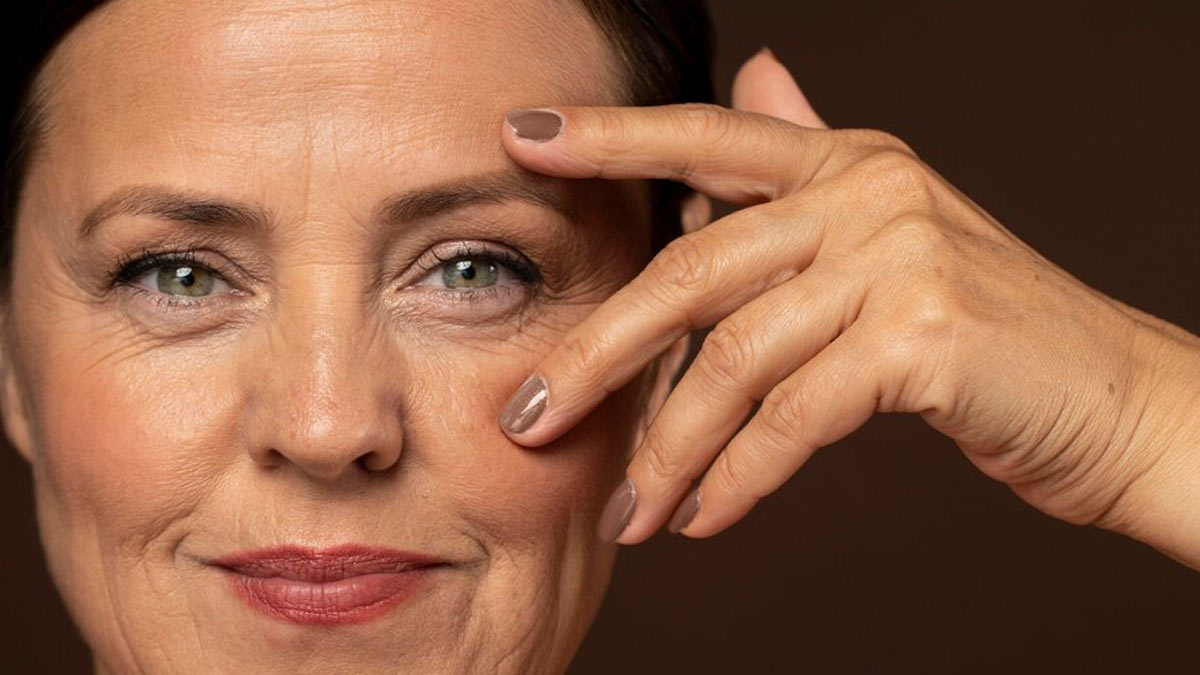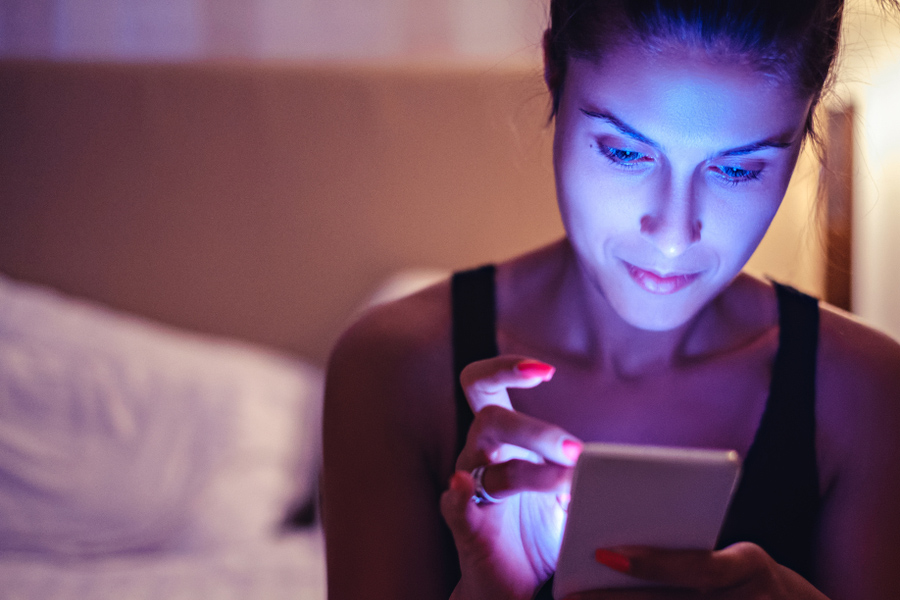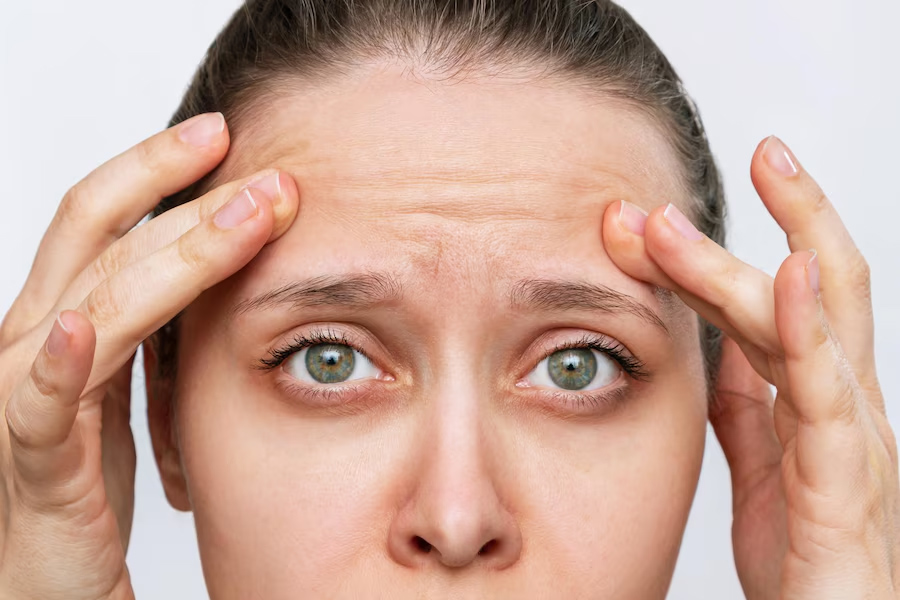
Did you know searches for the term 'blue light' have increased since 2004 according to Google Trends? This highlights concerns about blue light and attempts at obtaining protection from this potential danger. From makeup products to eye lenses and computer filters people are looking for the best items to protect themselves. Skincare and makeup products claiming blue light protection have gone up drastically. We spoke to Dr Atula Gupta, Dermatologist, Dermatosurgeon, Paediatric Dermatologist MBBS, MD-Dermatology, Venerology and Leprosy, who explained the effects of blue light on skin and if it accelerates skin ageing.
Table of Content:-
What Is Blue Light?

“Blue light is a high-energy visible light that emits visible light in wavelengths between 400-500 nm. As the name suggests, blue light is seen as blue, and its main source is sunlight. Other sources are digital screens, such as cell phones, computers, laptops, and televisions”, said Dr Gupta.
Effects Of Blue Light On Skin

In a study published in Frontiers in Aging in 2022, researchers examined the impact of prolonged exposure to artificial blue light on fruit flies. The findings suggested that such exposure could hasten the ageing process and alter their metabolite levels.
Here are some effects of blue light on the skin, as listed by Dr Gupta:
- Blue light has been shown to cause oxidative damage to the skin like UV radiation.
- It can penetrate deep into the skin causing photoageing and inflammatory skin conditions.
- It can cause pigmentation issues like age spots and melasma.
- Blue light also harms collagen and elastin regeneration.
- Chronic inflammation from blue light is a known trigger for ageing leading to wrinkles, sagging, and loss of elasticity.
Dr Gupta highlighted, “It’s essential to note that the research on blue light and skin ageing is still in its early stages, and many questions remain unanswered. For example, the extent to which blue light from electronic devices affects the skin compared to natural sunlight is still unclear. In addition, factors, such as the intensity and duration of blue light exposure, as well as skin characteristics, may influence its effects.”
Positive Effect Of Blue Light
"Blue light also has some positive effects and has been used in dermatology for treating psoriasis, eczema, acne and providing photo rejuvenation. The wavelength and intensity of the blue light exposure determine how it affects the skin. Although there is evidence indicating the negative effect of blue light, the use of a computer screen for eight hours a day for five days at a 20-cm, or approximately 8-inch distance does not worsen pigmentation", said Dr Gupta.
Protective Measures Against Blue Light Exposure
"Limiting screen time, especially before bedtime, can help reduce exposure to blue light and promote better sleep quality. Additionally, using blue light-blocking skincare products, such as moisturiser and sunscreen, may offer some protection against the effects of blue light. By staying informed and taking proactive measures to protect your skin, you can help mitigate potential risks and maintain healthy, youthful-looking skin in the digital age", highlighted Dr Gupta.
According to a 2021 study, reduced exposure durations and lower intensities of high-energy blue light can aid in averting skin ailments. Conversely, extended exposure to high-energy blue light has been linked to heightened risks of DNA damage, cell and tissue demise, eye and skin barrier impairment, as well as accelerated photoaging, as indicated by research findings.
[Disclaimer: This article contains information provided by an expert and is for informational purposes only. Hence, we advise you to consult your expert if you are dealing with any skin issues to get the necessary treatment.]
Also watch this video
How we keep this article up to date:
We work with experts and keep a close eye on the latest in health and wellness. Whenever there is a new research or helpful information, we update our articles with accurate and useful advice.
Current Version
